A Book for All and None
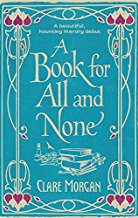 “I first caught sight of Beatrice Kopus crossing St Giles. It was just down from the Lamb & Flag; she came out of St John’s and crossed over, entirely without looking, it seemed to me, and disappeared into Pusey Street. It was not that she looked unusual in Oxford. She looked, indeed, of that relatively lean and intellectual type you often see there. But there was something that did not quite fit, in the gait, in the disposition. She had dark hair with a hint of something powdery about it. Her hands were long and elegant. She had (I could see it even at a distance) beautiful feet. I came across her again on the corner of Magdalen Street, a fortnight later. It was one of those almost clear days that you get in Oxford when time seems suspended. She hesitated as if she wanted to say something.
“I first caught sight of Beatrice Kopus crossing St Giles. It was just down from the Lamb & Flag; she came out of St John’s and crossed over, entirely without looking, it seemed to me, and disappeared into Pusey Street. It was not that she looked unusual in Oxford. She looked, indeed, of that relatively lean and intellectual type you often see there. But there was something that did not quite fit, in the gait, in the disposition. She had dark hair with a hint of something powdery about it. Her hands were long and elegant. She had (I could see it even at a distance) beautiful feet. I came across her again on the corner of Magdalen Street, a fortnight later. It was one of those almost clear days that you get in Oxford when time seems suspended. She hesitated as if she wanted to say something.
We talked for a few minutes on the corner of the street. We were rather in the way; people had to push past us. It turned out that she had been up at Christ Church at the same time I was lecturing at Jesus. I think we met once, she said, at one of John Kelly’s parties at St Giles House.
She was back at Christ Church in a visiting capacity. I suddenly remembered she had written a brilliant thesis on Virginia Woolf and fellowship had been in the offing but nothing had come of it. Great things had been expected of her but she had disappeared.”
An Affair of the Heart
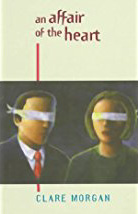 From the short story ‘L’Hotel des Grands Hommes’
From the short story ‘L’Hotel des Grands Hommes’
“L’Hotel des Grands Hommes is an ordinary looking little French hotel on the far side of the Place du Panthéon. Three well-scrubbed steps lead up to it. On either side of the steps are two identical fir trees in white wooden boxes, so green and so identical you might doubt they were real except for the moist squares of well-turned earth in which each is planted, a rich dark red, particularly in the evenings when the sun slews down over L’Eglise de la Sorbonne and the whole square is filled with subdued ruby.
The hotel gets its name from the domed and decaying grandeur of the Panthéon itself, in which are housed the remains of famous men, of Hugo, Zola an the inimitable Voltaire. But one cannot say, although the hotel brochure claims it, that the best rooms overlook the Panthéon. All you can see from your window is a flat expanse of dressed stone, pale ochre in the early mornings, orange at midday, an the gangs of local children roller skating on the pavement, with patches on the backsides of their trousers and an abundance of unkempt hair.”
Story
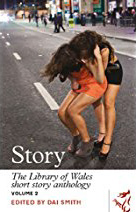 From the short story ‘Charity’
From the short story ‘Charity’
“And after they were married, he stood at the foot of the bed and took his clothes off, one by one, his tie, his shirt, his socks, his underpants (she had looked the other way when he unbuckled his belt). He had stood at the foot of the bed, at last with nothing on at all, and his body rather thin and drab, and a thin streak of shadow under the curve of every rib, and almost directly under the electric light, so that his body looked elongated a little, although it cast no shadow, which was strange because everything else in the room had a rather black shadow attached to it. When she had seen him like that, she knew the true nature of the mistake she had made, and knew also that it was not something she could put right, not ever, because now she had done it, it was part of what she was, and yourself was one thing you couldn’t get away from, no matter how long, or how earnestly, you tried.”
Words and Women
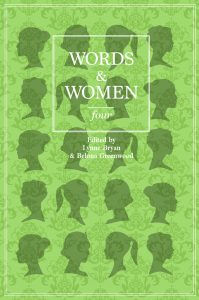 From the short story ‘Thiruvega’
From the short story ‘Thiruvega’
“They had landed in Mumbai on 25th February. It was just coming in to the hotter season but they did not let that put them off.
They were due for their appointment, in the Bandra district, well away from the centre, at eleven thirty. The driver at first had difficulty in finding it. When he squinted at the address and said, Is it medical? she had nodded. We will find it, he said, looking at her from under his eyelashes. We will find it for sure.
There was a reception desk with a queue already and beyond that was a tiny waiting room. At first they were the only Europeans. The receptionist smiled and took their details, just her name and the time of the appointment, then they took their shoes off and went and sat down in the straight-backed waiting-room chairs.
The consultant, Dr Mrs Kandesh Aliyah, was friendly. I think she liked us, William said afterwards. There was a fifty percent chance of success which sounded small but seemed to her enormous. One chance in two. The coin falling this way or that way. When Dr Mrs Kandesh Aliyah said, Yes, of course, I am sure we can help you, she had felt something she could not at first identify. It was a small, warm kernel of immediate feeling. She searched around for something to call it but could come up with no adequate name.”
What Poetry Brings to Business
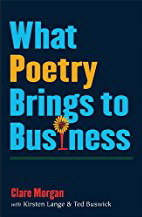 “Cambridge is about sixty miles from London; you can get there in an hour on the English definition of a fast train. The day was sunny, and Downing College would be looking beautiful and regal, set just away from the slightly surreal centre of that archetypal English university town.
“Cambridge is about sixty miles from London; you can get there in an hour on the English definition of a fast train. The day was sunny, and Downing College would be looking beautiful and regal, set just away from the slightly surreal centre of that archetypal English university town.
It was not an academic occasion that I was on my way to. The well known forms of a particular kind of intellectual debate were not what I was heading for. I had spent an hour on the train with my laptop rather precariously balanced on the drop-down table that was just to small for it. I was making adjustments to my presentation.
At Downing College it was not a more or less interested group of literature students that was waiting for me. True, I was going to talk about poetry. But it was poetry wearing a very different kind of hat. What was waiting for me among the courts and lawns and high-ceilinged rooms of the college was the executive team of a high-tech start-up company. I was running a workshop on strategic thinking. Reading poetry, I was going to say, could be vital to your future. My session was scheduled at the end of a two-day strategy seminar. The executive team was made up of fourteen men and woman from Belfast , London, New York, and Minneapolis. They had been working intensively on the future of their company ever since their arrival. They would be tired and already thinking about drinks and dinner. I was on for the last two hours of their final evening. Mine had been billed as an ‘experimental’ slot.”
The New Penguin Book of Welsh Short Stories
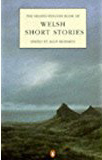
From the short story “Losing”
‘Really. What is it like?’
‘Oh. It is nothing. It is just a lot of heavy breathing really. That is all.’
She had been very much older than her years, even then. Distant relatives who came occasionally and went, wondered among themselves if she had ever really been a child.
‘Such a dark, serious girl. And a great pity, when you think of it. But there.’
And this one would smooth the multi coloured feather at the side of her felt hat, and that one would dust off the brim of his trilby with clean, thin fingers going the same way as the nap, and they would move on to other more important issues, the rising cost of living, the encroachment of Socialism, the perils of this (for so they were beginning to think of it) permissive age.”
Luminous and Forlorn
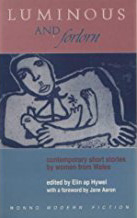 From the short story ‘A Place in Wales’
From the short story ‘A Place in Wales’
“ ‘It’s out there. I know it is.’
The rhythmical squeak of the spinning wheel stuttered and slowed, the oscillating arc of its shadow on the farther wall came to a stop.
‘You’re imagining things,’ said the woman, and cupped her two hands, one over each of her kneecaps, and eased the tension out of the back of her neck, and sat quite relaxed, her shoulders leaning slightly forward over her knees and her backbone curved so that you could see the diminishing knots of her vertebrae spoiling the smoot line of her shirt.
‘You’re tired I expect. You’ve had a bad day. Why don’t you go up to bed?’
The man waved away her suggestion and twisted irritably in his chair by the fire. He was a young man, younger than the woman, quite considerably younger. The firelight reflected on the flesh of his neck made him seem younger still, the skin so smooth and shiny, like a child’s. He could almost have been her son, or perhaps a nephew, the single issue of some older sister.”
To read reviews of Clare’s publications click here